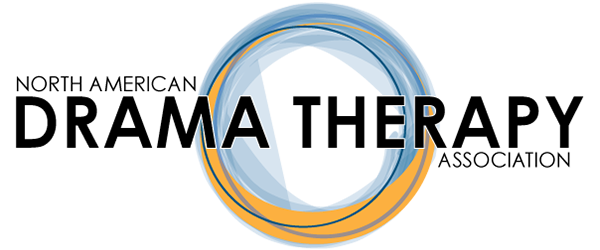
NADTA RESEARCH MENTORSHIP PROGRAM 2024-2025
Are you an emerging researcher wishing to publish an article or develop a research project but are unsure where to start? This NADTA research mentorship program may be for you! Drama therapy research is emergent and has room for further growth and exploration. If you would like to join the conversation happening in drama therapy research consider applying to this new program by becoming a mentee! You can apply on your own or apply in partnership with another emergent researcher (up to three members allowed per project).
Overview of Program:
This program seeks to connect established researchers in the field of drama therapy with emerging researchers who have graduated from a drama therapy training program or already have a master’s degree and are nearing the end of the alternative training program, have or will apply for their RDT certification in the near future, and have an established plan/platform in which to engage in research. Mentors and mentees are matched up by their areas of expertise.
What are the goals of the program:
Who is a Mentee: A mentee is a practicing RDT, or someone in the process of becoming a RDT who has already graduated from a drama therapy training institute or program, or already has a master’s degree and is nearing the end of their alternative training program. They are interested in research but do not have the structural knowledge to run a research project alone, or to pursue research publication. The mentee is likely newer to the field and is looking to established RDT’s for guidance. A mentee is able to commit the time and energy into a research project or into the publication process. Although the mentee has no financial responsibility to the mentor, though it is the aim that the mentor is paid for their services through the NADTA and grant funds, they are committed to following set deadlines and accomplishing the tasks set forth in collaboration with their Mentor. The mentee is committed to the project and is willing to sign a contract of their commitment to this effect.The mentee is part of one of three tracks: The publication track, The IRB research track, or The research Track (No IRB) Mentees may apply for themselves, or with a team of up to three people (each team member must submit an individual application). Individuals/teams may apply for more than one track, but will only be chosen for one max. The Three Tracks: Track 1: Publication Track: Do you want to publish an article in a peer reviewed journal? In the Publication track: Mentors will assist mentees in…
Or. Turning a finished thesis into an article Or. Turning IRB approved research into an article
Track 2: The IRB Research Track: Do you have access to an IRB and want to engage in a research project? In the Research with IRB Track: For those with IRB access, mentors will…
Timeline: Research Track with IRB
Track 3: The Research Track (No IRB): Do you want to complete a research project that does not require an IRB, such as an autoethnographic study, a scoping review, or a systematic review? For the Research Track without IRB: For those without IRB access, mentors will
Timeline: Research Track without IRB
Overall Program Timeline:
Application:
To Apply to be a Publication Mentee fill out the application by Sunday, July 14th: Click Here to Apply
To Apply to be an IRB Research Track Mentee fill out the application by Sunday, July 14th: Click Here to Apply
To Apply to be a Research Track Mentee (No IRB) fill out the application by Sunday, July 14th: Click Here to Apply
Please Note: The research team of the Research Mentor Program will be conducting research to evaluate the program and understand the experiences of the mentees, by applying to be part of the program, you are also acknowledging that you will be asked to take part in the accompanying research project.
Research 101: Frequently Asked QuestionsIn meeting with students, recent graduates, and professionals interested in research, the NADTA research committee is often asked a number of questions. The committee has put together the following document to answer many of these questions. This document is for those who are curious about drama therapy research and research in general. If you have any resources to add to this collection of answers, or if you have a question you’d like answered, reach out to the NADTA Research Chair at [email protected]. No question is too big or too small!
How to Get InvolvedThe research committee’s hope is that this list will be a growing document to which NADTA members can contribute. The NADTA research committee welcomes your suggestions. If you have feedback or additional references to be included, you are invited to contact the NADTA Research Chair: [email protected] Requesting Research Participation from NADTA Members
|
|||||||||||||||

